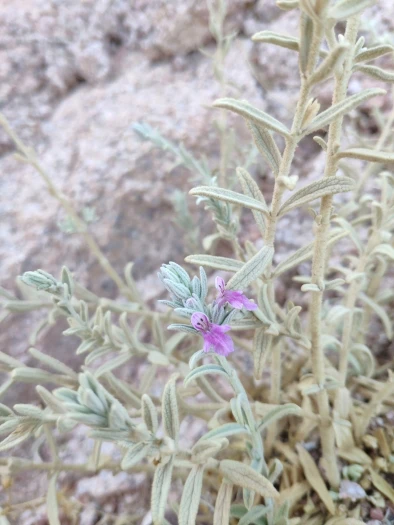Egyptian Betony
(Stachys aegyptiaca)
Egyptian Betony (Stachys aegyptiaca)
/
/

Denys Vynokurov
CC BY 4.0
Image By:
Denys Vynokurov
Recorded By:
Copyright:
CC BY 4.0
Copyright Notice:
Photo by: Denys Vynokurov | License Type: CC BY 4.0 | License URL: http://creativecommons.org/licenses/by/4.0/ | Rights Holder: Denys Vynokurov | Publisher: iNaturalist | Date Created: 2020-12-27T16:03:19-08:00 |














Estimated Native Range
Climate Requirements
| • Precipitation | 0" - 17" |
| • High Temp. | 82°F - 98°F |
| • Low Temp. | 29°F - 50°F |
Summary
Stachys aegyptiaca, commonly known as Egyptian Betony or Egyptian Woundwort, is a perennial herb native to the Mediterranean region and Western Asia, specifically thriving in arid, rocky habitats and scrublands. It typically grows to a modest height and features a clumping form with square stems. The plant produces small, white flowers arranged in whorls that bloom in the summer, offering a subtle visual appeal. The foliage is often hairy, adding a textural element to its appearance.
Egyptian Betony is valued for its drought tolerance and ability to thrive in poor soils, making it a suitable choice for xeriscaping and rock gardens. It is also used in traditional medicine for its purported wound-healing properties. In cultivation, it requires minimal maintenance, preferring full sun to part shade and well-drained soils, including clay, loam, or sandy types. While it tolerates low water conditions, occasional watering during prolonged dry spells can keep the plant looking its best. Gardeners should be aware that, in some conditions, it can spread aggressively, so it may require management to prevent it from overtaking other plantings.CC BY-SA 4.0
Egyptian Betony is valued for its drought tolerance and ability to thrive in poor soils, making it a suitable choice for xeriscaping and rock gardens. It is also used in traditional medicine for its purported wound-healing properties. In cultivation, it requires minimal maintenance, preferring full sun to part shade and well-drained soils, including clay, loam, or sandy types. While it tolerates low water conditions, occasional watering during prolonged dry spells can keep the plant looking its best. Gardeners should be aware that, in some conditions, it can spread aggressively, so it may require management to prevent it from overtaking other plantings.CC BY-SA 4.0
Plant Description
- Plant Type: Herb
- Height: 1-2 feet
- Width: 1-2 feet
- Growth Rate: Moderate
- Flower Color: White
- Flowering Season: Summer
- Leaf Retention: Deciduous
Growth Requirements
- Sun: Full Sun, Part Shade
- Water: Low
- Drainage: Medium
Common Uses
Bee Garden, Low Maintenance
Natural Habitat
Native to arid, rocky habitats and scrublands in the Mediterranean region and Western Asia
Other Names
Common Names: Egyptian Woundwort
Scientific Names: Stachys aegyptiaca, Stachys affinis, Stachys boveana, Stachys palaestina, Stachys pauciflora
GBIF Accepted Name: Stachys aegyptiaca